MIT Professor: Put Cars On A Diet!

The car industry is under pressure to improve fuel efficiency. It is not that they have been sitting on their thumbs. Automakers have achieved large increases in fuel efficiency through better technology in recent decades, says MIT economist Christopher Knittel.
The problem is:
“Most of that technological progress has gone into compensating for weight and horsepower.”
If we would be driving cars of the same size and power that were typical in 1980, the country’s fleet of autos would have jumped from an average of about 23 mpg to roughly 37 mpg, well above the current average of around 27 mpg, Knittel says.
Currently, better fuel economy is mandated through complicated and sometimes skewed CAFE rules. Knittel thinks that compliance is easy: Maintain the rate of technological innovation experienced since 1980, and reduce the weight and horsepower of the average vehicle sold by 25 percent. Bingo, CAFE complied with.
If the country would shift back to the average weight and power common in 1980, a fleet-wide average of 52 mpg could be reached by 2020, Knittel calculates. However, Knittel does not think it will happen by itself.
The CAFE regulations will “end up reducing the cost of driving. If you force people to buy more fuel-efficient cars through CAFE standards, you actually get what’s called ‘rebound,’ and they drive more than they would have.”
Knittel’s solution?
“When it comes to climate change, leaving the market alone isn’t going to lead to the efficient outcome. The right starting point is a gas tax.”
(Hat tip to Dipl. Ing you-know-who)

Bertel Schmitt comes back to journalism after taking a 35 year break in advertising and marketing. He ran and owned advertising agencies in Duesseldorf, Germany, and New York City. Volkswagen A.G. was Bertel's most important corporate account. Schmitt's advertising and marketing career touched many corners of the industry with a special focus on automotive products and services. Since 2004, he lives in Japan and China with his wife <a href="http://www.tomokoandbertel.com"> Tomoko </a>. Bertel Schmitt is a founding board member of the <a href="http://www.offshoresuperseries.com"> Offshore Super Series </a>, an American offshore powerboat racing organization. He is co-owner of the racing team Typhoon.
More by Bertel Schmitt
Latest Car Reviews
Read moreLatest Product Reviews
Read moreRecent Comments
- Calrson Fan Jeff - Agree with what you said. I think currently an EV pick-up could work in a commercial/fleet application. As someone on this site stated, w/current tech. battery vehicles just do not scale well. EBFlex - No one wanted to hate the Cyber Truck more than me but I can't ignore all the new technology and innovative thinking that went into it. There is a lot I like about it. GM, Ford & Ram should incorporate some it's design cues into their ICE trucks.
- Michael S6 Very confusing if the move is permanent or temporary.
- Jrhurren Worked in Detroit 18 years, live 20 minutes away. Ren Cen is a gem, but a very terrible design inside. I’m surprised GM stuck it out as long as they did there.
- Carson D I thought that this was going to be a comparison of BFGoodrich's different truck tires.
- Tassos Jong-iL North Korea is saving pokemon cards and amibos to buy GM in 10 years, we hope.



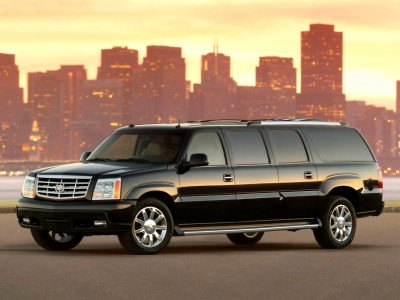
















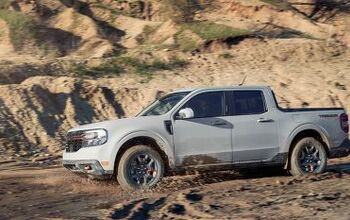





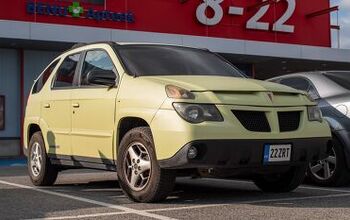




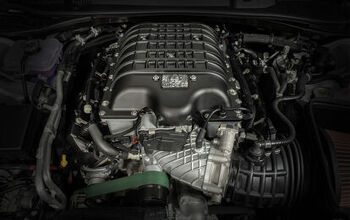
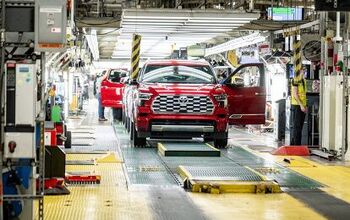

Comments
Join the conversation
What of agility? The ability to brake or swerve your way out of trouble on the road; a lighter car is bound to be more agile than a heavier one. Improved fuel economy would be a nice fringe benefit if cars were designed to be less likely to get involved in an accident in the first place. With improvements in rubber compounds, brake and suspension technology as well as advances in metallurgy and composite materials, it should be fairly simple for car companies to make a lighter, faster and more agile car that still fits the bill WRT passive safety and utility.
Too bad you can't legislate stupid out of people. Everyone screws up once in a while while driving, but let's be honest here, there are a lot of people driving badly out there. Almost 9 years ago to the day ago, I was involved in a bad wreck due to a 20 year old's stupidity, and if it hadn't been for the air bag and size of my vehicle, I would have been injured much more severely than I was. I've never been the same since that wreck, but I would have certainly been more severely injured if the 2000 GMC Sierra I was riding in was a 1985 GMC truck.